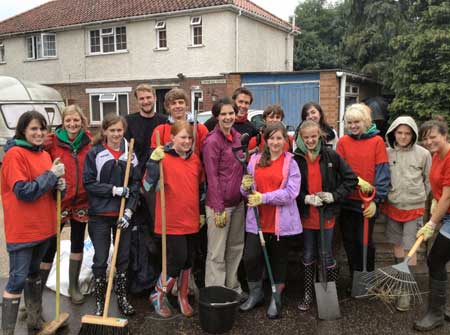1) Oi! You’ve peed on the seat!
You know the scenario. As you go into the Ladies, you catch the eye of a
woman coming out. You exchange that vague half-friendly nod that says, ‘excretion,
eh?!’ She looks, as far as it is possible to tell, like a civilised person.
Then you go in the toilet stall. You look down. She has peed all over the seat.
Many is the time I have fantasised about stalking out and bellowing:
 |
| Courtesy of imgkid.com |
‘Excuse me – you’ve peed all over this seat! If I had sat down, I would
be covered in your wee by now! I bet you are one of those toilet-phobics who hover
instead of sitting down. Well you know what? It’s people like you who make
seats wet for the rest of us! You are the ones causing the problem! It’s time
you got over your mother’s warnings about diseases and wised up. Here’s what
you do in a toilet. Go in. Look down. Even if you can’t see any visible drops,
wipe the seat. Sit down – preferably over the large hole in the middle. When
you’re done, just in case, and as a courtesy to the next person – wipe the seat
again. Exit. Wash hands. Job done. WHY IS THIS TOO HARD FOR YOU?!’
2 Get control of your dog!
If your dog is hurtling towards me, slathering from bared jaws, or
jumping up trying to slash at my clothes with its claws, it is not good enough
for you to object balefully, ‘He’s only a puppy! He won’t bite you!’
 |
| Courtesy of aattp.org |
Here’s what I would say if I dared. ‘I don’t care. I am already not OK
with what he is doing now. To you he may be an adorable best friend, but I was
bitten in the face as a baby by a Pekinese, which my grandmother assured
everyone was only playing. When you see cute playfulness, my primitive brain
sees toothy death bearing down on my jugular vein, ready to rip it out. And
apparently your half-arsed baby-voice cries of Tootsie! are making no difference. This beast has prey in its
sights and has forgotten you exist. Can I ask that you GET CONTROL OF YOUR DOG!’
3 Everything would be all right with my meal if you would just stop
interrupting it to ask!
 |
| Courtesey of www.theguardian.com |
I know, waiters are trained to do this. It is meant as genuine polite
concern for the customer. But when you are enjoying a meal out, and deep in
conversation, there is nothing more annoying than someone breaking right in
with, ‘Is everythink all right with your meal?’ It’s worse when they do it
again when your next course arrives. And again when you forget that Christmas
is still clinging to your thighs and go for pud.
Conversation is really important to me. When I combine this with an
eating activity, I am already jostling with the need not to show other people the
contents of my mouth. I am multi-tasking, and I don’t want to be stopped
mid-sentence for an analysis of my dining experience. I really don’t mind you
asking, but please wait for a lull, when your intervention might alleviate an
awkward silence, and would be welcomed with enthusiastic praise.
4 Mind your own business!
 |
| Courtesy of 100awesomethings.com |
This is, once again, clearly the result of over-optimistic training –
this time of supermarket cashiers. Now, I love to strike up a genuine
conversation with a cashier, if I’m in the mood and they seem amenable. I have
been a cashier. It is stressful and dull, and you work ridiculously long shifts
with, these days, barely any right to a tea break. It’s nice to make human
contact with the person scanning your tins of mushy peas, and the next time you
shop, you’ll know them and the world will seem a friendlier place.
But if you’re
in the middle of an existing conversation, or stressing that it’s pouring and
you’re going to get soaked lugging the trolley to the car, you don’t
necessarily want an awkward teenager to bust in with a rote-learned, ‘Have you
got any plans for the weekend?’ And when you grunt something non-commital,
hoping they will see the signs and leave you alone, you don’t want a detailed
itinerary of their weekend plans for a trip to Laserquest.
Cashiers and trainers of cashiers, actual conversation is an art, not
something you can thrust on people. And British reserve is there for a reason. It
protects our right to shop silently if that’s the mood we’re in. Respect it!
5 Stop trying to swim through me!
 |
| Courtesy of webmd.com |
Yes, this time it’s personal. Where I go swimming, there is a woman who
has no concept of personal space. I think she may be amphibious, because even
though I arrive at 6.30am when the pool opens, she is always in the water
already. She ploughs up and down, and when she reaches the end, turns and
pushes of with absolutely no reference to anyone else in the pool. If you are
in the way, she just carries on as though you made of a liquid she can swim
through. If you are, in fact, made of solid matter, this can result in bruises,
but she never stops to check.
My problem is that her speed is similar to mine, except that she slows
down a bit towards the end of a length. If I set off after her, I will catch
her up. However, if I overtake, this seems to offend her. For the next length,
she will flap at my feet or barge me out of the way, until she is ahead again.
Early morning swimming is meant to be a relaxing pastime. You don’t want
pool rage incidents. So I always make sure that I am a full length away from
her. Even so, more regularly than you would expect in a non-contact sport, I
feel a full-blown punch connecting with head, or a kick in the ribs, or see a
watery dervish exploding towards me. And it’s always her.
Once, a fellow pool user noted that she actually tried to swim through
me, and ended up barging her sea-creature body right over mine, with a lot more
skin to skin contact than I normally encourage with people I am not married to.
This has gone on for years, several times a week, and I have never said
anything. That British reserve can be a curse sometimes!
Go on, I’d love to hear, what would you say out loud if you were stroppy
enough?

























